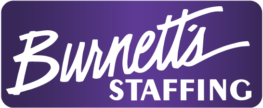
Hard and soft skills play different roles in the workplace and require different approaches if you aim to develop either one. Understanding the difference between these skills helps you stand out as the best candidate anytime you apply for a position. While hard skills are industry-specific, soft skills are transferable and essential to every field. Explore the difference between hard and soft skills.
What Are Soft Skills?
Soft skills are non-technical traits that allow for successful collaboration and interaction with other people. Some commonly desired examples of soft skills include:
- Critical thinking
- Being a self-starter
- Communicating
- Resolving conflicts
Generally, soft skills are interpersonal skills that enable people to communicate, listen, problem-solve effectively, and work in team contexts.
Developing Soft Skills
Soft skills can take time to develop but are crucial for career advancement. Some of these abilities come naturally, and you can hone others through practice, introspection, and mentorship. For instance, classes and seminars can help develop skills such as time management and communication.
What Are Hard Skills?
Hard skills, also called technical skills, are the learned abilities required for specific jobs. They involve a level of expertise and theoretical or practical knowledge in a particular field of study or industry. Job postings often list the hard skills candidates must possess in the “Role Requirements” section. Some hard skills you may encounter include:
- Writing
- Coding
- Software proficiency
- Data analysis
College degrees and academic certificates or licenses are the most common ways employees can build their hard skills.
Developing Hard Skills
Most people develop hard skills through education, training, and experience over time. Some workplaces offer programs for employees to continue their education, but you can also sign up for a course at a community college. Continuing education and keeping up with new techniques and trends can help professionals stay relevant and competent in their fields.
Why Both Matter
When it comes to the difference between hard and soft skills, knowing why both matter is crucial. While soft and hard skills contribute to overall job success, they perform different functions in the workplace. Hard skills help an employee carry out the duties of their role effectively. On the other hand, soft skills enable the employee to work with others and navigate the social dynamics of the workplace.
Employers search for hard and soft skills when reviewing résumés and during interviews; having more skills makes you a well-rounded individual.
Find Your Next Job
Need help finding your next career? Burnett’s Staffing offers job placement services and specializes in accounting, customer service, sales, human resources, and administration. We can also assist with professional coaching to help you stand out. Contact our team today if you live in Fort Worth, TX, or the surrounding area.
